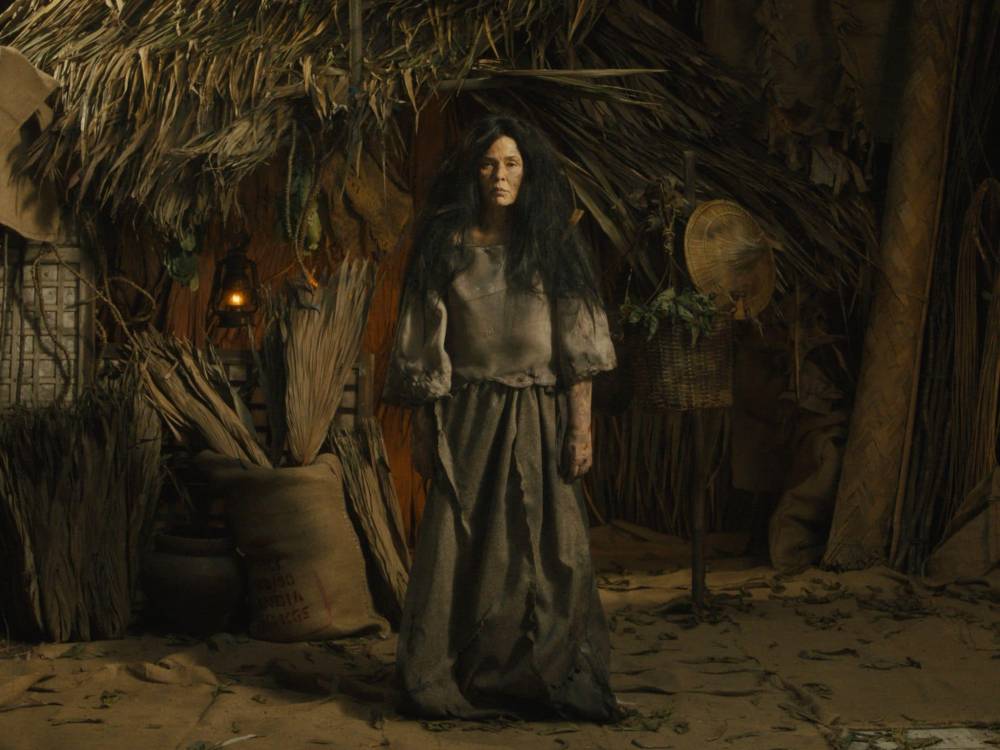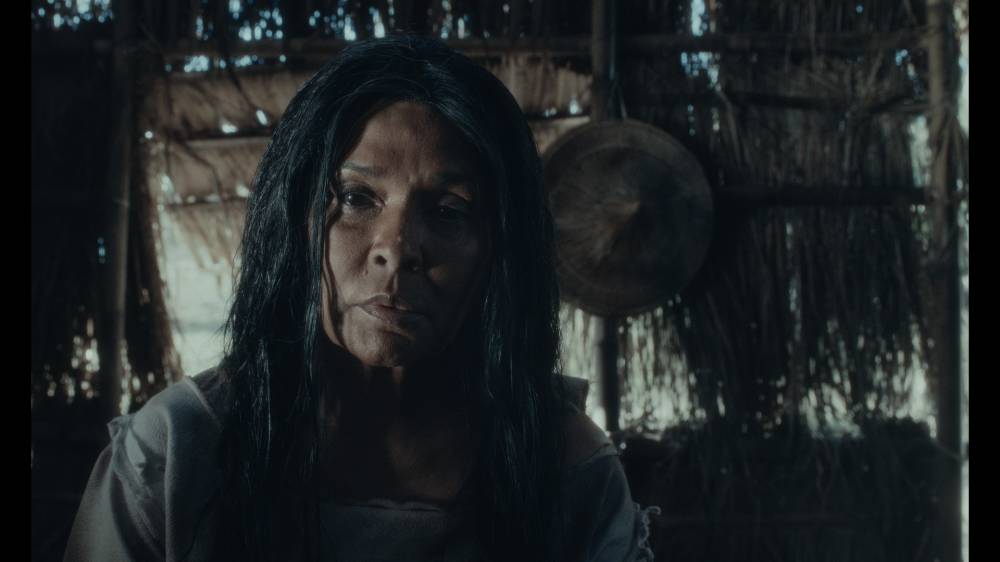Who’s afraid of Hilda Koronel?

Hilda Koronel hates the chronically late.
But she will not walk out on you; she’s not rude like that. She finds unwarranted tardiness disrespectful, but she will stay put and wait for you. Two hours, three hours, perhaps even longer. She will wait however long it takes for you to arrive on the set—just so she can bid you farewell and make her exit, faster than you can say, “I’m sorry.”
“I can work with anyone as long as they’re on time. Ayoko ng late. It makes me livid, especially back in the day. One time, someone made me wait six hours. And when finally she arrived and said, ‘Sorry, tita …,’ I was like, ‘Ah, okay. I’m going.’ Or, I will wait so I can go home as soon as they kiss me,” the returning film legend recalled in a recent chat with select reporters.
Koronel was a muse to the late Lino Brocka, the canvases being the local cinematic gems “Tinimbang Ka Ngunit Kulang” (1974), “Maynila sa Mga Kuko ng Liwanag” (1975) and, arguably her career’s crowning glory, “Insiang” (1976). And what the esteemed filmmaker and national artist always taught her was that she had to be ready earlier than most, if not everyone
“‘Mauna ka,’ Lino would tell me,” Koronel, 67, said.
That piece of advice she took with her to every movie set she found herself in. Give her an 8 a.m. call time, and she would be there at 7, sending astonished production staff members scurrying in panic: “Andito na po si Miss Hilda!” And all the while, she would be sitting quietly in a corner, her face already made up, her hair up in rollers.
“Your time is important to me. When you’re late, it means you don’t give mine the same importance,” she said. “There are a lot of things I can let slide, but being late isn’t one of them.”

Lateness, ineptitude, injustice
Her distaste for lateness is rivaled only by her distaste for ineptitude. Back in the day, shooting additional takes meant wasted film. And the more film in the bin, the higher the production cost. Thus, she was trained to nail her scenes—as much as possible—in one take. This was especially true for heavy crying scenes, which inevitably go stale with repetition, she pointed out.
But not everyone is of her caliber. Koronel is usually patient and understanding of her costars, especially young newcomers. But if it’s already the wee hours of the 24-hour filming days and the cameras are still rolling, she would be compelled to go off-script and make sure that you know what’s on her mind.
“Crying scenes are difficult to act out, so let’s do it in one take—kung maaari lang naman. But sometimes, the young ones would just watch you and forget their lines. And so, I would be like, ‘You’re 16. You should have your lines memorized. It’s 4 a.m.—tara na, let’s go! Inaantok na ‘ko,’” she said.
But if there’s one thing that could potentially trump her distaste for lateness and ineptitude, it’s her loathing for injustice. Koronel comes from an era when actors can become moving targets for flying scripts when the director’s temper reaches boiling point. She can take it. But the moment she witnesses mistreatment on the set, and she knows she’s in the right, best believe she’s going to throw those scripts right back.
And a few of her past directors deserved it, Koronel said, like those who “punished” her on the set because they had tried—and failed—“to get me in bed.” And in another project, she learned that off-camera workers were fed spoiled rice. The actress blew her top.
“Nagwawala ako. Ayoko ng ganun. Never mind the higher-ups; the regular people should be treated well, always. They get paid so little, especially back in the day. And if the shooting gets packed up, they wouldn’t get paid at all. That’s why I work, even if I have a fever. Titiisin ko ‘yun. I will be taping until I fall over.”

Regal air
Perhaps it’s for these reasons that Koronel has earned a reputation for being intimidating. Is it aura? Presence? Call it whatever you want to call it. But all I knew was that I found myself sitting up straight the moment she elegantly sauntered into the room to talk about “Sisa,” the historical thriller that roused her from a 12-year acting slumber.
A hush fell over the room, as if a terror professor had just appeared in front to hand back graded papers streaked with red ink. All of a sudden, my classmates, some of the most irreverent veteran show biz reporters, remembered their “po” and “opo.” And when did everyone start bowing their heads before asking a question?
Indeed, Koronel exudes a regal air and holds an intense gaze that’s alluring and intimidating all at once. “Parang mahirap abutin” (She seems unapproachable), a writer remarked. Even filmmaker Jun Robles Lana, who’s directing the thespian’s comeback project, described his first impression of the icon thus: “Nakakatakot! (Scary). You just know she’s legendary.”
“Bakit sila natatakot, eh wala naman akong ginagawa?” (Why would they be scared, when I’m doing nothing?), Koronel said.

Playing a spy
And perhaps it’s also for such reasons that she’s the perfect choice to play a spy for the revolutionary government set in the early 1900s in “Sisa.” She has to be fierce and skilled. She must always be in the right place at the right time. And most of all, she must have in her a burning desire to stand up for those who are wronged.
Set during the Philippine-American War, Koronel’s character wanders the land, seemingly broken and defeated, after the slaughter of her entire family. Sisa, they call her. A crazy woman. But unknown to many, the madness is but a mask to conceal her true intentions—to avenge the lives of people she held dear. And in the process, she ends up defying expectations at a time when women were expected to be silent.
Produced by The IdeaFirst Company, Octobertrain Films, Quantum Films, and Cineko Productions, “Sisa” has just started shooting in Tarlac, and is slated to premiere at an international film festival. The movie also includes Eugene Domingo, Jennica Garcia, and not a few theater actors.
“It’s such a very interesting role; complicated but wonderful and challenging. Nobody knows her. She doesn’t have a name. When they ask her, she pretends she doesn’t know. But her family was decimated, so you know that the anger in her is extreme,” Koronel said.
“I read the script so many times I dreamed of the scenes. This should be fun… A lot of killings!”

Giving back to cinephiles
Koronel has been based in California since the late 2000s, and has found happiness and comfort in the simple life she lives with her family. She cooks three times a day. She feeds her pets. Washing clothes is not a problem, but oh how she hates folding them. By all means, she’s “a typical housewife,” and she enjoys it.
She doesn’t really miss acting, to be honest. My God, she said, she has been at it since 1969! The last film she did was in 2012, “The Mistress,” with John Lloyd Cruz and Bea Alonzo. And then nothing again for the next 12 years. It’s not for lack of offers, though, that’s for sure. She gets pitches all the time, but they all remain just that—pitches.
At this point in her career, Koronel believes she has earned the right to choose the projects she wants to do. And it would take an incredibly compelling script to make her pack her bags and fly back to Manila.
“I told Jun, ‘I won’t do this if your script doesn’t move me to tears.’ It did, especially the ending. I received three pitches just recently, and this presentation was the best, I thought,” said Koronel, who, for the first time, showed a hint of worry about getting back to the grind after a long absence. “I’m excited but a little nervous. But as they say, acting is like riding a bike.”
In a sense, this film is also her way of giving back to cinephiles, young and old, who continue to hold her body of work in high regard. “I get to talk to them on Instagram. And I like that. Whatever I can do to help and teach young movie fans, I’m willing to do,” she said.
As the freewheeling conversation wore on, it became increasingly clear that her intimidating image—like Sisa’s madness—is just a facade. True, she can be “mataray,” as she put it herself, but always for a good reason. Don’t mistake her frankness for arrogance, and her intolerance of incompetence for insolence.
In fact, Koronel is funny, charming, and actually quite shy. And for an hour, she held court in front of a rapt audience, whom she regaled with fascinating tales from the golden days of Philippine cinema, with stories of delicious encounters that only she could have gotten away with. And each one she punctuated with a ready, hearty laugh.
Well, that was until another writer dared preface her question with, ‘Sorry, late ako.” Without missing a beat, her brows now raised ever so slightly, Koronel quipped: “It’s okay. Bakit, tinamaan ka ba?”





















